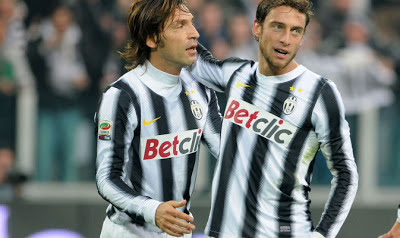 |
| Get used to it: Ibrahimovic is presented as a PSG player |
No, the reason I had no will to write about Italian football for so long was because of Italian football--not its performances on the field, but more off it. Two things encapsulate my displeasure. Let's take a look.
First, and acutely for me, there was a hideous denouement to the whole Zlatan Ibrahimovic and Thiago Silva affair. Selling them to PSG was a capitulation to the most vulgar truth of modern football: the nouveau riche are not simply upstarts but ones who can goad the slightly willing into selling half their team overnight. That is precisely what happened, if not in number then in quality, when Milan sold Silva and Ibrahimovic.
In selling Silva, one of the best defenders in the world, Milan pioneered a market manoeuver of shocking duplicity, which stands alone in its callousness towards fans. When PSG got serious about Silva and were tantalizingly close to getting him, in stepped, predictably, Silvio Berlusconi for the colpo di scena, sparing fans and Silva alike from the indignity of selling their team's foundation to a team that flashed a little cash. I am being reductive here, as there was more to it than Berlusconi, but it was he who headlined the rescue.
Silva renewed his contract, and Milan fans could breathe a sigh of relief at least for the 2012-13 season. However, a few weeks later, Silva was sold remorselessly to PSG. It was cruel even by Milan's recent standards. The fans least suspected it because a contract renewal has been a time-honoured gesture of the player and the club to continue their relationship at least for the subsequent year. But Milan relinquished tradition a long time ago.
And then there was Ibrahimovic who was hastily and gracelessly shown the exit as part of the package deal. The Swede is not generally known for his retreating disposition, but he has every right to despise the suits at Milan, and by all accounts he does (he and Galliani don't talk now). Milan didn't spare him any indignity. They wanted him gone if Silva was gone, which is not a very edifying approach to dealing with a player who had allowed Milan to stand on his shoulders and grab a Scudetto in the two seasons he was there.
The protest and response in Italy was surprisingly muted, leading to speculation that Galliani had perhaps promised something to the hard core of the Milan contingent, the Curva Sud. This cadre has always been at the forefront of Milan mirth, madness, and melancholy over the years, but their protests were tame by their standards and they have, to their credit, supported the team through a disastrous start to the season. Lest we forget, Milan's season is now recovering, unlike my faith in the men leading my club. We are at the whim of Berlusconi until he decides to sell.
 |
| Andrea Pirlo and Claudio Marchisio |
Secondly, and more succinctly, Legge Crimi, the stadium law that I have written extensively about has still not been ratified. In its jarring absence, there have been some promises by Roma and Inter for a new stadium, but those projects are slated for 2016. The toxicity of the legislative bodies, local councils, and politicians in Italy is staggering. Vested interests have once again trumped broader utility. The law that would allow teams to refurbish their dilapidated homes is still on standby, and so are the potential revenues that could be realized by these clubs on matchdays.
This event and non-event are symptomatic of what is totally rotten in Italy. The suits lie and dither, and Italian football suffers. But that is why I'm back. I have to write about Italian football even when it is lurching from one crisis to the next. I have been for a while now, so why not continue? At the very least, the textual trace will give the chaos and hopelessness some form and geometry.
And of course, there are some plus points. On the field, Italian football is showing signs of hale. In Europe, five teams are still alive. Juventus emphatically announced their return to the big time by flattening the reigning European Champions Chelsea 3-0, a victory that allowed the spectator to anatomize how effective Juventus really are. A midfield of Claudio Marchisio, Arturo Vidal and Andrea Pirlo could even play behind invisible men and still make inroads into the opposition half at will. Speaking of invisibility, even in Antonio Conte's conspicuous absence (he is serving a harsh ban), Juventus are still at the summit of Serie A (though they have lost to Inter and Milan this season), and have just finished top of their Champions League group.
Lazio, Napoli and Fiorentina have been impressive as have been Inter. Milan started the season poorly, but Stephan El Sharaawy, Riccardo Montolivo and at times Bojan have shown that Milan can predicate a revival of fortune and spirit on these younger players (Montolivo at 27 being the geriatric among the three). There is hope because Italian football, as I have written about countless times, as a philosophy, as a way of playing, is still powerful and effective. Italy just went to the Final of Euro2012, humiliating England and soundly beating Germany on the way, and this year's football in Serie A has been compelling, even exciting.
Considering the cynical bureaucrats running the game are disinclined to bring about real change, the coaches and players deserve immense credit for their effort.
Forza Italia!

Welcome back
ReplyDeleteand please keep it up , we are counting on you to get the news about Italian football specially legge crimi.
I am hopeful you will have a great piece to write in February after the Milan-Barcelona CL tie!
ReplyDelete